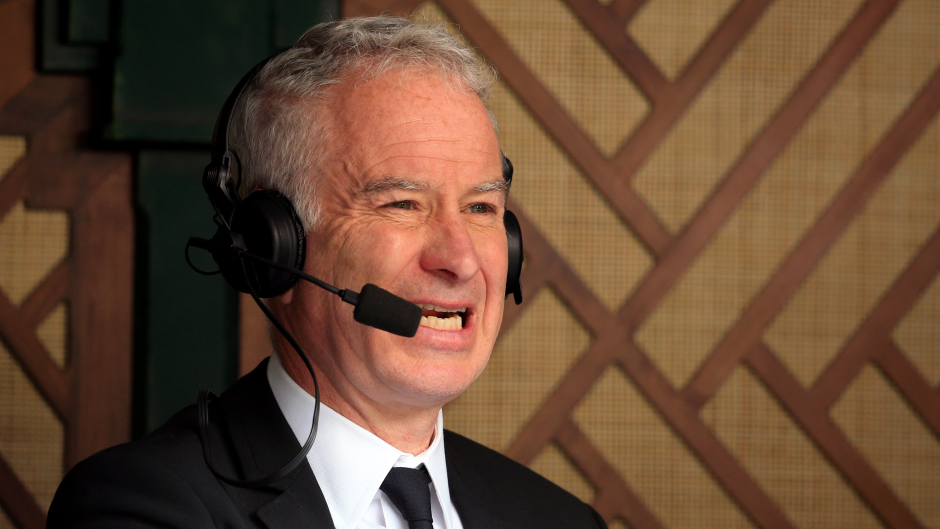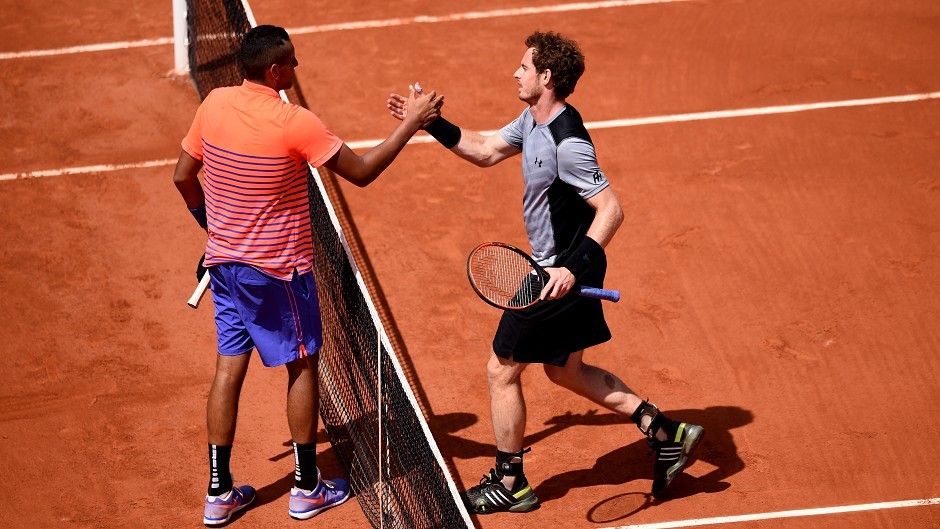The irony was off the scale at Wimbledon when John McEnroe started bemoaning the conduct of Nick Kyrgios, following an explosive confrontation with Stefan Tsitsipas at the weekend.
In a contest which featured a thrilling array of twists, brilliant improvisation and exquisite ground strokes, underpinned by regular temper tantrums from the unseeded Australian and accusations he was an “evil bully” from his Greek opponent, tensions didn’t so much simmer as erupt like Vesuvius.
Kyrgios has long been the enfant terrible of the tennis circuit, but it was difficult to listen to the condemnation from McEnroe without recalling his myriad battles with officialdom, hapless line judges and the world in general, nor the fact that his most notorious rammy became the subject of a UK hit single Chalk Dust – The Umpire Strikes Back in the summer of 1982.
The previous year was the tournament where he screamed the words: “You cannot be serious!” during an otherwise routine first-round victory over his compatriot, Tom Gullikson. Following yet another disputed call, Superbrat directed possibly the second most famous line in tennis history at the Scottish umpire Edward James: “You guys are the absolute pits of the world!”
These demented rants became as much a part of the McEnroe legend as the lustrous quality of his performances which earned him seven Grand Slam singles titles, including three at the hallowed London venue where he now provides compelling punditry for the BBC and American television.
Usually, his comments are prescient and hit the spot as precisely as his serves and volleys, but when he launched into a critique of Kyrgios which even suggested it was only a matter of time before a rival assaulted him, I couldn’t help myself flinging back the words at him: “You cannot be serious”.
It’s similar to when Graeme Souness or Roy Keane climb on their soapboxes about bad tackles, conveniently forgetting that they perpetrated some of the worst challenges ever witnessed on a football field. But that’s the thing about punditry. Once you’ve retired, it’s as if the old controversies never happened.
Krygios, though, needs to change his approach and appreciate that he can’t keep blaming others for turning him into a ticking timebomb of insanity. There were occasions during his four-set victory over Tsitsipas where he reached sublime heights and, at his best, he is capable of beating anybody.
But so far – and he’s 27 – he hasn’t come close to winning a Grand Slam title and he isn’t seeded at Wimbledon. He might insist he has plenty of friends in the locker room and accuse his critics of being “soft”, but these are desperate words from a man who is never going to be mistaken for a Trappist monk.
It’s not just the foul language, nor his howling at umpires, nor even the grumbling, grouching and glowering at anybody who dares cross his path when he’s in a mood. It’s the sarcastic hand-clapping, the times where he acts as if he can’t even be bothered to respect the man on the other side of the net, the sheer childishness of so much of his conduct which is such a turn-off.
If these outbursts only happened occasionally, there might be hope that Kyrgios, however belatedly, will mature into a fully functioning adult. But it has become a pattern of offending and his opening match at Wimbledon was packed with controversies as he edged out Britain’s Paul Jubb in five sets.
The thrilling spectacle was marred by multiple flashpoints, including Kyrgios spitting towards a “disrespectful” spectator – as if that was any excuse for his actions – and calling a lineswoman a “snitch”, which was, frankly, pathetic.
To be fair, Tsitsipas was no angel himself throughout the duo’s turbulent encounter. He could and probably should have been defaulted after smashing the ball into the crowd not once, but twice and his attempts to convey injured innocence in the aftermath were a bit rich, given the multiple instances on his own cv when he has been guilty of gamesmanship.
It was only last August that Andy Murray accused Tsitsipas of “cheating” during their blockbuster match at the US Open after he left the court at the conclusion of the fourth set and took an eight-minute bathroom break, which the Scot subsequently described as “f***ing ridiculous”.
And yet, that’s still not on the same scale as Kyrgios, who often gives the impression he is a victim of persecution when, if anything, he is treated leniently by the authorities whenever he wades into another stramash.
He undoubtedly has many supporters among crowds on the ATP circuit, as was obvious from the raucous racket when he was beating Tsitsipas. But even here, it’s as if he doesn’t feel any obligation to those cheering him on.
Because as he once said at a press conference: “I’m good at hitting a tennis ball at the net. Big deal. I don’t owe them [the fans] anything. If you don’t like it, I didn’t ask you to come and watch. Just leave.”
What a charmer. Of course, some of this is trash-talk, beloved of boxers in the fistic art. So perhaps it’s best to watch him with the sound switched off.
Or not at all.




